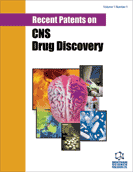Abstract
Inflammation arises in the CNS from a number of neurodegenerative and oncogenic disorders, as well as from ischemic and traumatic brain injuries. These pathologies give rise to increased levels of extracellular adenine nucleotides which, via activation of a variety of cell surface P2 purinergic receptors, influence the inflammatory activities of responding immune cells. One P2 receptor subtype in particular, the P2X7 receptor, potentiates the release of proinflammatory cytokines, such as interleukin-1β (IL-1β) from macrophage-like cells. It is also thought to contribute to secondary brain injury by inducing neuronal cell death. Therefore, antagonism of this receptor could have significant therapeutic impact on all disorders, not just CNS, to which excessive inflammatory activities contribute. The use of currently available P2X7 receptor antagonists for the treatment of CNS inflammation has been limited to the generally non-selective antagonists PPADS, oxidized ATP, Brilliant Blue G, suramin, calmidizolium, and KN-62. However, the recent patents and development of novel P2X7 receptor antagonists, as discussed in this review, will provide new tools both for clinical and research purposes. Here we discuss compounds for which patents have been applied since 2006, from the following categories: benzamide inhibitors, bicycloheteroaryl compounds, acylhdranzine antagonists, biaromatic P2X7 antagonists, heterocyclic compounds and amide derivatives, and aromatic amine antagonists.
Keywords: P2X7, antagonist, inflammation, CNS, nucleotides
 34
34





















